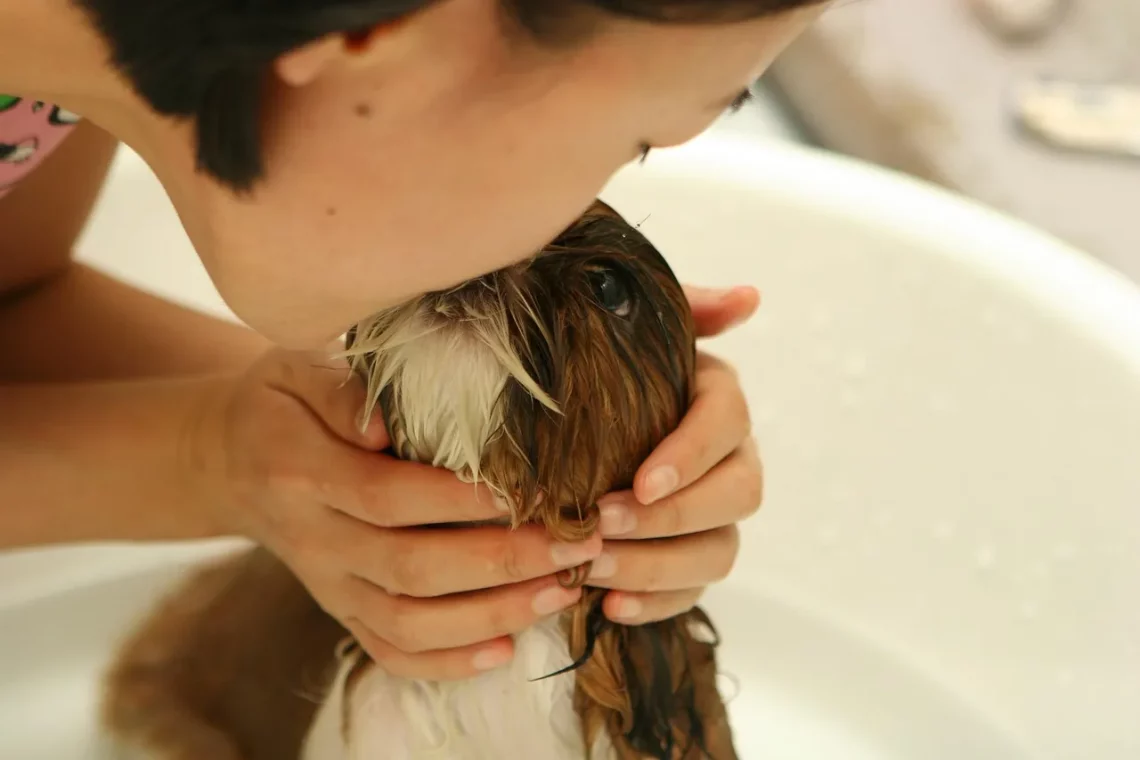
Do Puppies Breathe Fast While Sleeping and What It Means
When you observe your puppy sleeping, you might notice a flurry of activity beneath the surface: rapid movements, twitching paws, and yes, fast breathing. This lively behavior can evoke a sense of wonder and curiosity. After all, these small creatures are not just adorable; they are also full of energy and complex physiological processes. Understanding why puppies breathe fast while sleeping can be both fascinating and informative for pet owners.
Fast breathing during sleep is not uncommon among puppies, as their bodies are still developing and adjusting to their environment. Their sleep patterns differ significantly from those of adult dogs, largely due to their growth and maturation processes. Puppies often experience more active sleep phases, which can manifest in various ways, including rapid eye movement (REM) sleep, where dreaming occurs. During this phase, their breathing may quicken as their bodies process new experiences and information from their waking hours.
As a puppy owner, it’s essential to be attentive to your furry friend’s sleeping habits. Understanding what is normal and what might indicate a potential issue can help you provide better care and ensure your puppy’s well-being. In this article, we will delve into the reasons behind fast breathing in sleeping puppies, how it differs from adult dogs, and what potential concerns may arise.
Understanding Puppy Sleep Patterns
Puppies, like human infants, spend a significant portion of their time sleeping. In fact, they can sleep anywhere from 18 to 20 hours a day, depending on their age and activity level. This extensive sleep is crucial for their development, as it allows their bodies to grow and their brains to process what they’ve learned during their waking hours.
During sleep, puppies cycle through different stages, including light sleep and deep sleep. The rapid eye movement (REM) stage is particularly interesting, as it is during this phase that dreaming occurs. You may notice your puppy twitching or making small noises during REM sleep, which indicates they are likely dreaming about their experiences. This active sleep is characterized by faster breathing as their bodies engage in various physiological processes.
The reason for fast breathing while sleeping can often be linked to the excitement and energy that puppies exhibit throughout the day. As they explore their environment, interact with people and other animals, and engage in play, their brains are constantly absorbing information. When they sleep, their minds work to process and organize these experiences, which can lead to rapid breathing.
Additionally, puppies have a higher metabolic rate than adult dogs, meaning they require more oxygen to support their growth and energy levels. This increased metabolic demand can also contribute to faster breathing during sleep. Therefore, if you notice your puppy breathing quickly while snoozing, it’s often just a reflection of their energetic nature and developmental needs.
When Fast Breathing is Normal
It’s essential to recognize that fast breathing in puppies is typically a normal occurrence. As mentioned earlier, their sleep patterns and metabolic rates differ significantly from those of adult dogs. Generally, fast breathing during sleep is harmless, especially if your puppy is otherwise healthy, active, and exhibiting normal behaviors when awake.
One of the most common reasons for rapid breathing in sleeping puppies is the transition between sleep stages. Puppies frequently shift between light and deep sleep, which can cause variations in their breathing patterns. During light sleep, their breaths may quicken, while in deep sleep, their breathing may slow.
Another factor to consider is the ambient temperature. Puppies are more sensitive to heat than adults, and if they are too warm while sleeping, they may breathe faster to regulate their body temperature. Ensuring a comfortable sleeping environment with appropriate bedding, ventilation, and temperature control can help mitigate any unnecessary rapid breathing.
Moreover, the breed of your puppy can also play a role in their breathing patterns. Certain breeds, particularly brachycephalic dogs like Bulldogs and Pugs, may exhibit faster breathing rates even at rest, including during sleep. This is due to their unique anatomical structure, which can impact their respiratory function.
As long as your puppy is healthy, happy, and shows no signs of distress, fast breathing during sleep is usually not a cause for concern. However, it’s essential for pet owners to remain vigilant and monitor their pets for any changes in behavior or health.
Signs of Potential Health Issues
While fast breathing during sleep is often normal, there are instances when it may signal an underlying health issue. Being aware of potential warning signs can help you take proactive steps in addressing any concerns.
If your puppy exhibits consistently rapid breathing while awake, appears lethargic, or has difficulty breathing, it’s crucial to seek veterinary advice. Some conditions, such as respiratory infections, heart issues, or even anxiety, can manifest through changes in breathing patterns. A health check can help rule out any serious conditions and ensure your puppy’s well-being.
Another indicator to watch for is the color of your puppy’s gums and tongue. If they appear pale, blue, or grey, this could indicate a lack of oxygen and requires immediate veterinary attention. Similarly, if your puppy shows signs of coughing, wheezing, or nasal discharge, these could be signs of respiratory distress that should not be ignored.
Monitoring your puppy’s overall behavior is also essential. If they are suddenly less active, lose interest in food, or seem uncomfortable, it may be time for a vet visit. Changes in appetite or playfulness can be indicative of various health concerns, and it’s always better to err on the side of caution.
In summary, while fast breathing in sleeping puppies is typically normal, it’s essential to remain vigilant and aware of any changes in your puppy’s behavior or health. Regular veterinary check-ups can also help catch any potential issues early on.
Tips for Promoting Healthy Sleep in Puppies
Creating a conducive sleep environment is vital for your puppy’s overall well-being and development. Here are several tips to help promote healthy sleep habits:
1. **Comfortable Sleeping Space**: Ensure your puppy has a designated sleeping area that is cozy and secure. A soft bed or blanket can provide comfort and warmth.
2. **Temperature Control**: Keep the sleeping environment cool and well-ventilated. Puppies can easily overheat, so be mindful of the temperature.
3. **Routine**: Establish a consistent sleep schedule. Just like humans, puppies thrive on routine, and a regular sleep schedule can help them feel secure.
4. **Minimize Distractions**: Create a quiet and calm environment during sleep times. Limit noise and activity around their sleeping area to help them relax.
5. **Health Check**: Regular veterinary visits can help ensure that your puppy is healthy and that any potential health issues are addressed promptly.
By following these tips, you can help your puppy develop healthy sleep patterns, which are essential for their growth and development.
In conclusion, fast breathing in sleeping puppies is a common phenomenon that can be attributed to their unique sleep patterns and energetic nature. While it is usually nothing to worry about, being observant and aware of any changes in your puppy’s behavior is crucial. If you have any concerns about your puppy’s health or well-being, always consult a veterinarian for professional advice.
**Note**: This article is not a substitute for professional medical advice. If you have concerns about your puppy’s health, please consult your veterinarian.




